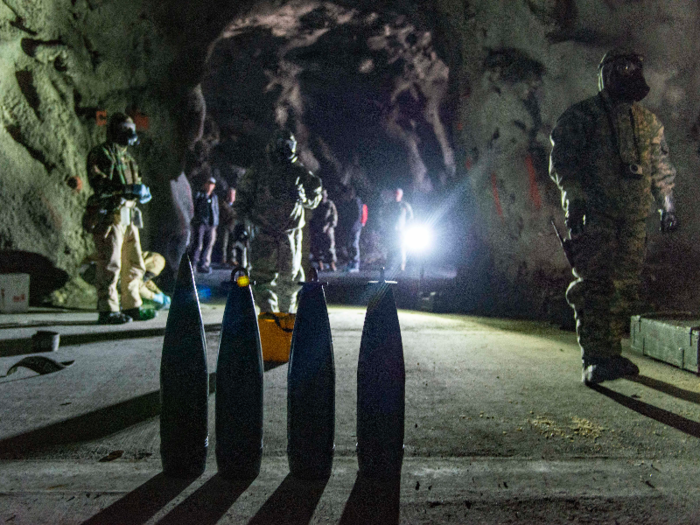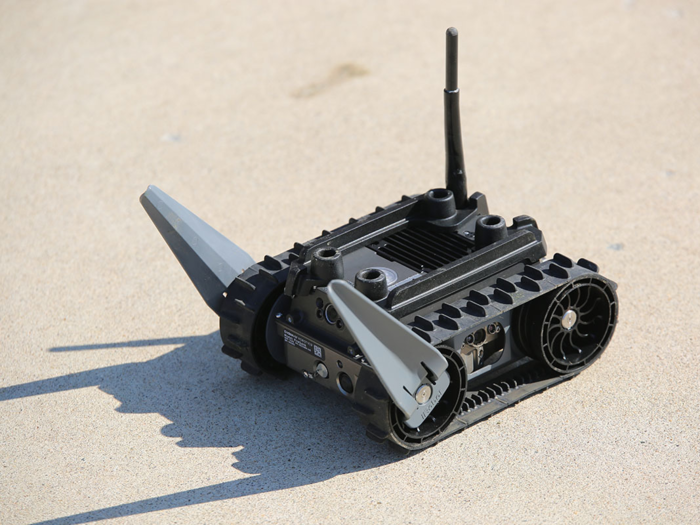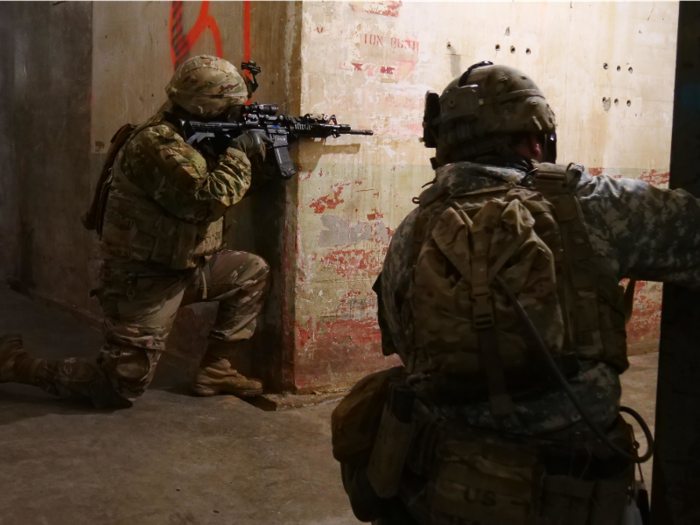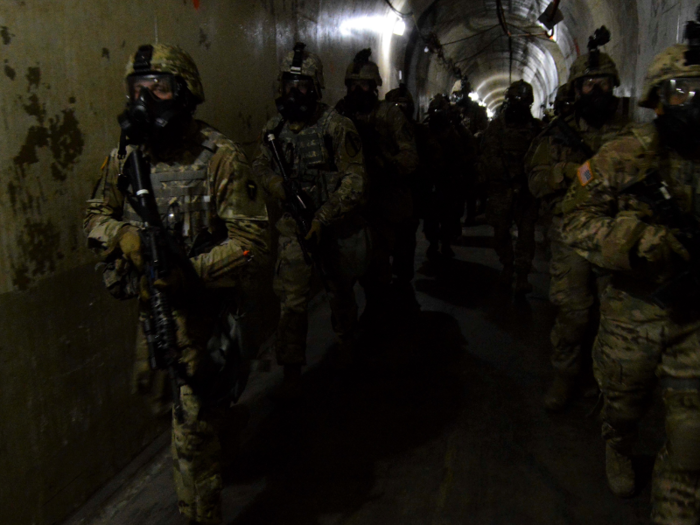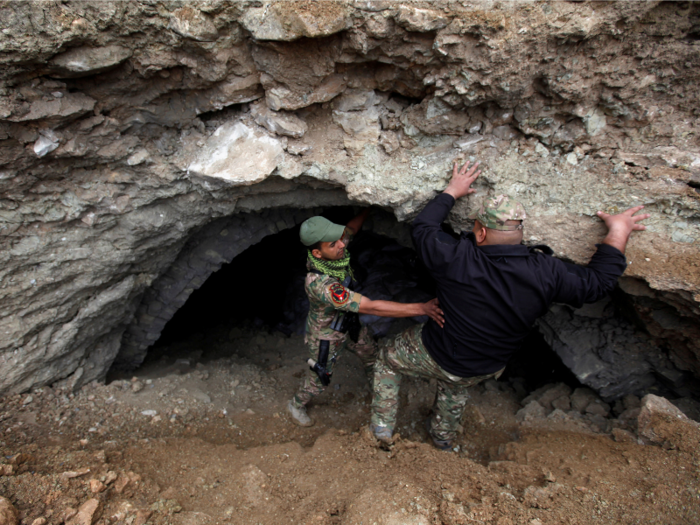While the Trump administration is increasingly looking to the skies and pressing for a Space Force, DARPA is focusing on operations underground.
In the agency's online request for information, DARPA specifies that it's trying to understand how technology could be used for rapid mapping, search, and navigation operations, likely in the case of urban conflict or disaster-related search-and-rescue operations.
"Complex urban underground infrastructure can present significant challenges for situational awareness in time-sensitive scenarios, such as active combat operations or disaster response," Jared Adams, a spokesperson at DARPA, told Insider via email.
The request comes out ahead of DARPA's Subterranean Challenge.
The Subterranean Challenge, or SubT Challenge, invites teams of researchers from all over the world to compete and find technological solutions for underground operations. The teams use locations — like the ones DARPA requested information about — to test technologies that can search and navigate in underground terrain where it might be too difficult for humans to go.
Teams in the systems competition focus on technology like robotics that can physically search and navigate in an underground terrain. On the virtual track, teams compete and develop software that can be used to assist in simulations of underground operations.
The urban circuit of the SubT challenge will take place in February 2020, hence the request for urban underground space.
"As teams prepare for the SubT Challenge Urban Circuit, the program recognizes it can be difficult for them to find locations suitable to test their systems and sensors," Adams told Insider.
"DARPA issued this RFI in part to help identify potential representative environments where teams may be able to test in advance of the upcoming event."
The military has become more aware that it needs to develop technology and strategy to fight in an underground, urban setting.
Historically, underground warfare has been the domain of special operations troops like Navy SEALs. But military researchers predict that this kind of warfare will be too much for special operators alone to navigate, particularly if dealing with an adversary like China or Russia, which both have extensive underground space. China in particular uses vast underground complexes to store missiles and its nuclear arsenal.
"We did recognize, in a megacity that has underground facilities — sewers and subways and some of the things we would encounter ... we have to look at ourselves and say 'OK, how does our current set of equipment and our tactics stack up?'" Col. Townley Hedrick, commandant of the infantry school at the Army's Maneuver Center of Excellence at Fort Benning, Georgia, said in an interview with Military.com last year.
The military has encountered underground facilities before — some Vietnam War-era special units explored tunnels dug by the Viet Cong.

